Soviet-style purge ‘will drag us back to dark days’
A plan by Georgia’s government to ban pro-western parties will mean the return of dictatorship under Putin’s influence, the opposition’s Tina Bokuchava says.
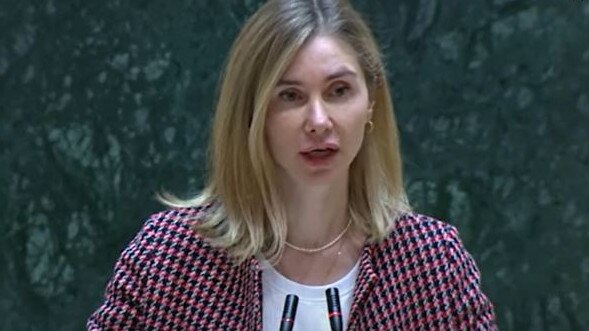
A plan by Georgia’s government to outlaw its political opponents after next month’s elections will drag the Black Sea state back to its Soviet-era past and boost Russian influence over the country, an opposition leader has said.
Tina Bokuchava, head of the United National Movement (UNM), warned that Irakli Kobakhidze, the prime minister, was intent on purging Georgia of pro-western political parties it claims are controlled by a shadowy cabal of elites it calls the “global party of war”. Kobakhidze has accused the UNM and other opposition parties of working against Georgia’s national interests; a tactic neighbouring Russia has used to justify a crackdown on opponents.
Critics say the move would transform Georgia, the birthplace of Joseph Stalin, into a one-party, authoritarian state. The UNM ruled for almost nine years before losing power in 2012.
“It would mean the end of Georgian democracy,” Bokuchava told The Times during a visit to London to raise awareness of the threat to free elections in Georgia. “The abolition of the opposition is very much Soviet and Stalinist. This is a very dangerous path for Georgia to take.”
Georgia, a country of 3.7 million people, gained its independence from Russia with the collapse of the Soviet Union in 1991. Opposition figures fear that it is now being sucked back into the Kremlin’s orbit by the ruling Georgian Dream party and its billionaire founder, Bidzina Ivanishvili, who made his fortune in Russia.
Huge protests erupted in Tbilisi in April when the government announced a “foreign agents” law that appeared to have been inspired by similar legislation that the Kremlin has used to stifle dissent in Russia. After the law came into force, the European Union said it was putting Georgia’s membership bid on hold. About 80 per cent of Georgians are in favour of joining the EU, according to opinion polls.
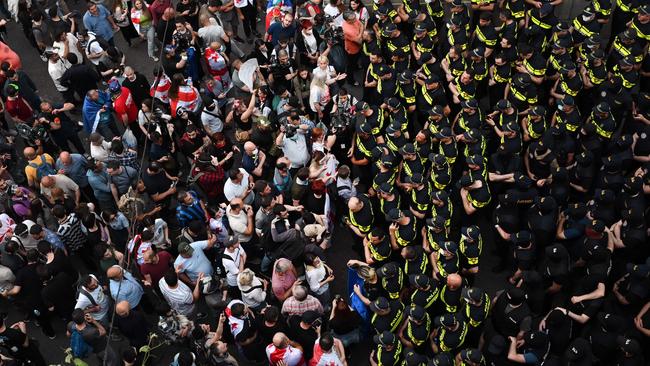
The law obliges organisations that receive overseas funding, including media outlets and anti-corruption groups, to register themselves as agents of a foreign power.
Bokuchava said that Ivanishvili was either taking orders directly from President Putin or was deliberately seeking to wreck Georgia’s ties with the West to strengthen his own grip on power. Ivanishvili served briefly as prime minister after Georgian Dream first entered office in 2012, but now rules from behind the scenes, pulling the strings from a vast, futuristic steel-and-glass mansion high above Tbilisi, the capital.
“Whether this is Kremlin-inspired or Kremlin-directed, the end result is still the same: Georgia is deprived of its European future and Putin still achieves his strategic objective for Georgia,” Bokuchava said. “Putin wants to turn Georgia into a failed state that he controls through a government that is either his puppet or is sabotaging Georgia’s European aspirations.”
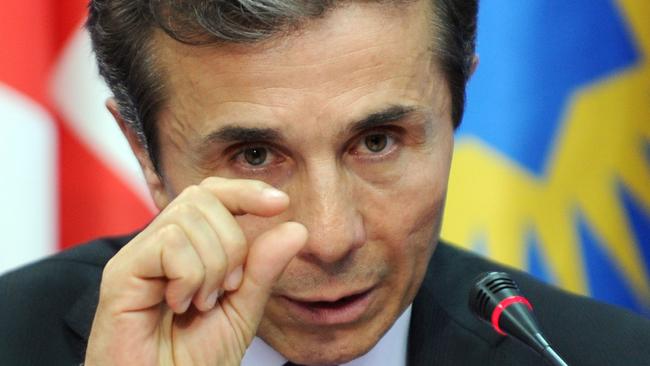
Tensions before the October 26 elections have echoes of the unrest in Ukraine in 2013-2014 that began when President Yanukovych backtracked on an agreement to boost ties with the EU after pressure from Moscow. Yanukovych was toppled by demonstrators in Kyiv, and Putin, who alleged that the protests were a US-backed coup, deployed his army to Crimea and eastern Ukraine in response.
Russia’s foreign intelligence service has now accused the US of plotting a similar uprising in Georgia. Andrei Klimov, the deputy head of Russia’s upper house of parliament, suggested last month that Russia could send troops to Georgia to prevent a revolution if its government requested assistance. Klimov drew an ominous analogy with the Kremlin’s intervention in the Syrian civil war, when the Russian army helped to prop up President Assad’s regime.
Russia has occupied one fifth of Georgia since a five-day war between the two countries in 2008 over the Kremlin-backed separatist regions of Abkhazia and South Ossetia. It has military bases in South Ossetia, less than a two-hour drive from Tbilisi, and is constructing a new naval base for its Black Sea fleet in occupied Abkhazia.
“Moscow will be watching these elections very, very closely,” Bokuchava said. She added, however, that it was unlikely that Russia would have sufficient manpower to deploy forces to Tbilisi on behalf of Ivanishvili. “They are spread too thin in Ukraine,” she said. She accused Ivanishvili of using the threat of Russian military intervention to intimidate voters.
Like other opponents of the ruling party, Bokuchava said she and her family received regular death threats. A number of opposition figures were beaten this year by suspected pro-government thugs, while others had their faces plastered on posters accusing them of being enemies of the people.
“This is very reminiscent of the dark, Soviet days,” said Bokuchava. In common with many other people in Georgia, her family has direct experience of Soviet political terror. Her great-grandfather, she said, was sent to Siberia by Stalin’s regime after a neighbour alleged that he was under the sway of “foreign influences”.
A US-educated mother of three, Bokuchava is one of several women who have taken up prominent political roles in Georgia, a traditionally conservative society. She was named head of the UNM in June when its previous leader, Levan Khabeishvili, stepped down after a savage beating by Georgian riot police at a protest against the foreign agents law.
Bokuchava has likewise faced violence: in 2021 she was gripped in a headlock by a Georgian Dream MP during angry scenes in parliament over the death of a journalist who was reporting on anti-LGBT protests.
The row over Georgia’s future has also prompted a rift between the government and Salome Zourabichvili, the country’s French-born president. Zourabichvili told The Times in April that Russia was waging “a hybrid war” in Georgia. She also claimed that Ivanishvili had succumbed to pressure from Moscow and was now seeking to derail the country’s “way to Europe.”
Russia alleged last week that Zourabichvili had been tasked by Washington with inciting anti-government protests after the elections.
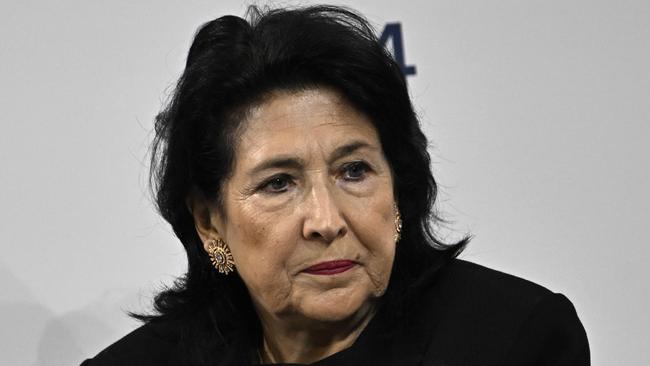
Georgian Dream has denied being pro-Russia. However, Ivanishvili has accused the mysterious “global party of war” of pushing Ukraine into war with Russia and trying to drag Georgia into the conflict. Senior MPs in his party have also alleged that the purported war party is dominated by Freemasons. The claim prompted mockery both inside Georgia and abroad.
James O’Brien, a US state department official who visited Georgia in May, has described the rhetoric by Ivanishvili and Georgian Dream as “like a Reddit page came to life”; a reference to the online social network that is notorious for conspiracy theories.
Opinion polls indicate that Georgian Dream will take about 35 per cent of the vote, enough to put it in first place. It would not be able to rule without a coalition partner, however, something Ivanishvili is seeking to avoid.
“Ivanishvili would need to rig the election to retain power,” Bokuchava said. “[But] the Georgian people will not accept the results of a stolen election.”
The Times

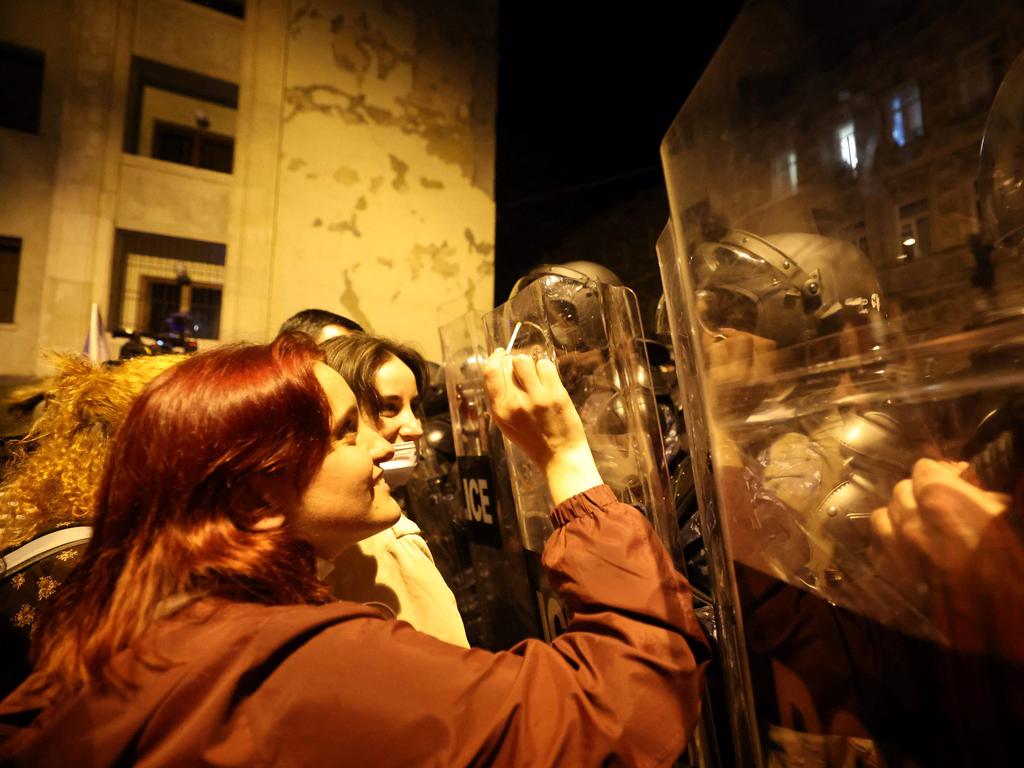
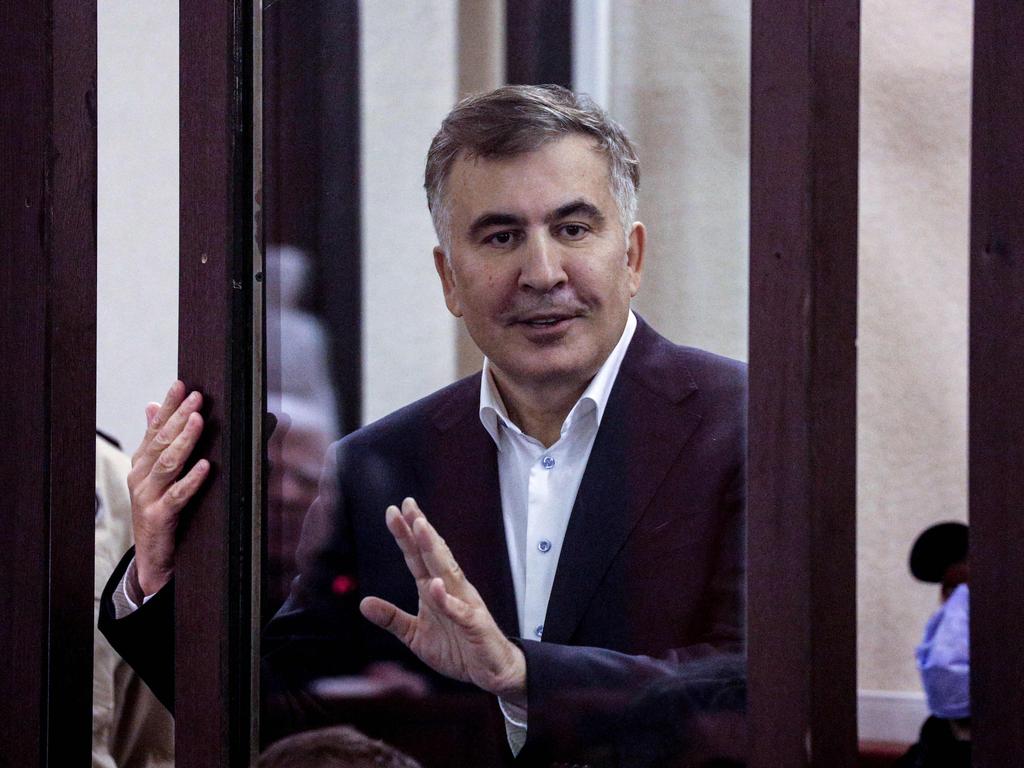
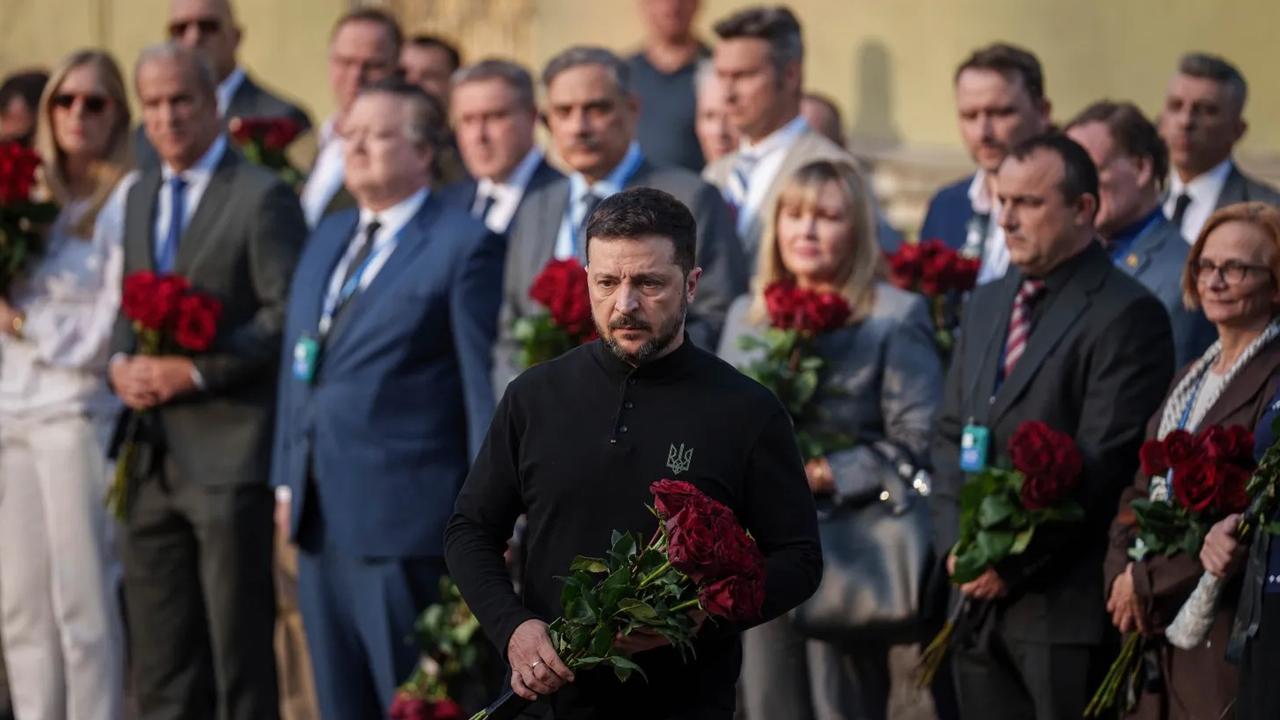
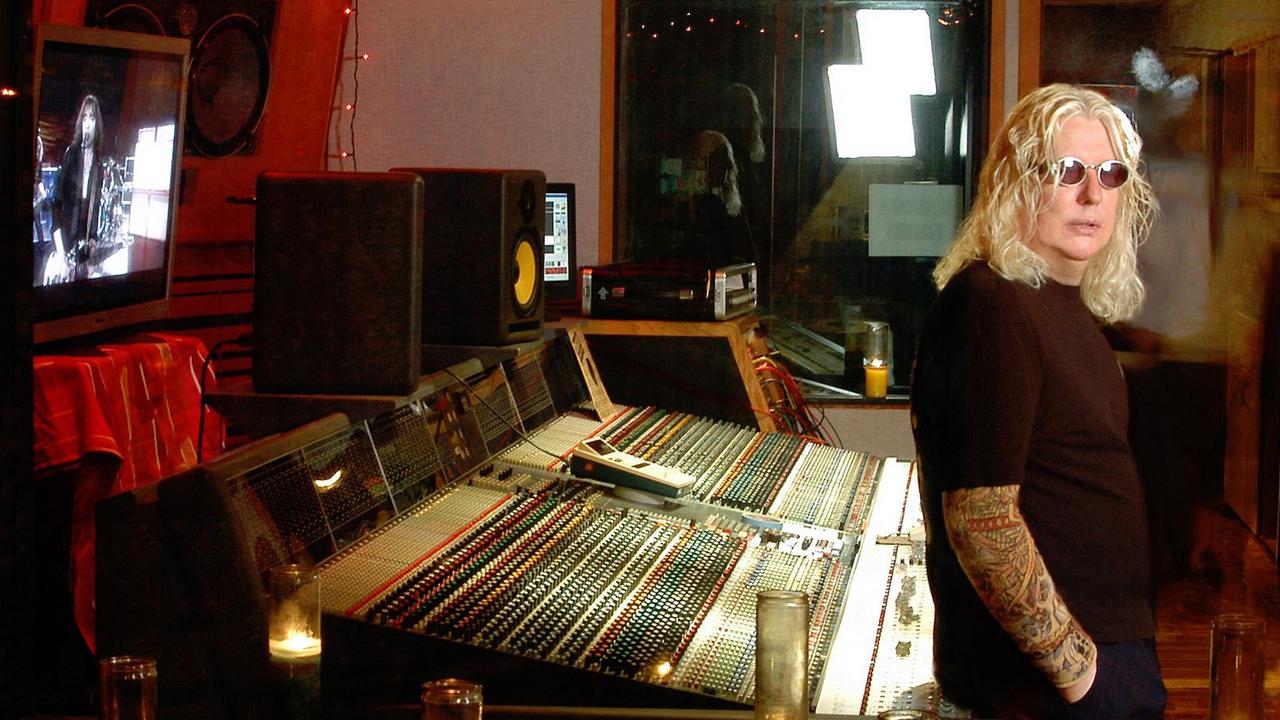
To join the conversation, please log in. Don't have an account? Register
Join the conversation, you are commenting as Logout